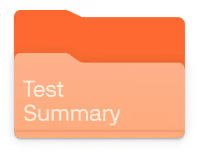
Key Benefits
- Spot autoimmune thyroid disease early by detecting antibodies against thyroglobulin.
- Clarify unexplained fatigue, weight changes, or cold intolerance by flagging Hashimoto’s risk.
- Guide monitoring and treatment decisions by showing autoimmune activity that may progress to hypothyroidism.
- Support fertility and pregnancy planning by flagging autoimmunity linked to miscarriage and preterm birth.
- Improve thyroid cancer follow-up by signaling when thyroglobulin results may be unreliable or misleading.
- Track antibody trends over time to gauge disease activity and recurrence risk after thyroidectomy.
- Reduce test confusion by explaining lab interference and prompting alternative thyroglobulin measurements.
- Best interpreted with TSH, free T4, and TPO antibodies plus your symptoms.
What is Thyroglobulin antibody?
Thyroglobulin antibody is an autoantibody made by the immune system that recognizes and binds thyroglobulin, a large protein produced by thyroid follicular cells and stored in the gland’s colloid as the building scaffold for thyroid hormones (thyroglobulin, TG; thyroglobulin antibody, TgAb; B lymphocytes). Thyroglobulin itself is synthesized in the thyroid and used to assemble thyroxine (T4) and triiodothyronine (T3).
These antibodies do not serve a normal function. Their presence reflects a loss of immune tolerance to thyroid proteins and signals thyroid-directed autoimmunity (e.g., Hashimoto’s thyroiditis, sometimes Graves disease). By attaching to thyroglobulin within the thyroid and in circulation, TgAb help flag thyroid tissue to the immune system, promoting inflammation in the gland (lymphocytic thyroiditis) and potentially disrupting hormone synthesis and release. Because they can bind circulating thyroglobulin, they also influence how much thyroglobulin can be detected in the blood, so their measurement provides context for interpreting thyroglobulin itself. In short, thyroglobulin antibodies are a fingerprint of immune recognition of the thyroid’s hormone precursor and a window into autoimmune activity affecting the gland.
Why is Thyroglobulin antibody important?
Thyroglobulin antibody is an immune signal that your body is tagging thyroglobulin—the protein the thyroid uses to store and release thyroid hormones. When this tag appears, it points to immune activity in the thyroid that can ripple through energy metabolism, heart rhythm, mood, cognition, growth, fertility, and pregnancy. It also matters in thyroid cancer follow‑up because these antibodies can distort thyroglobulin tumor‑marker readings.
Most labs report this test as negative or within a very low range; optimal values sit at the low/undetectable end. In that state, the immune system is tolerating thyroid tissue, hormone output is steady, and symptoms are unlikely. In pregnancy, negative antibodies align with lower risk of miscarriage and postpartum thyroiditis. In children and teens, a negative result suggests low near‑term risk of autoimmune thyroid disease.
When levels are elevated, it usually reflects autoimmune thyroiditis (commonly Hashimoto’s, sometimes Graves). Antibody‑driven inflammation can first cause a brief hormone spill (anxiety, palpitations, heat intolerance), then reduced production (fatigue, weight gain, cold intolerance, dry skin, constipation). A goiter may develop. Women are affected more often; in pregnancy, positivity is linked with higher risks of thyroid dysfunction, miscarriage, and postpartum thyroiditis. In youth, chronic elevation can affect growth, puberty timing, and school performance. High or rising antibodies can also interfere with, and sometimes stand in for, thyroglobulin measurements in thyroid cancer surveillance.
Big picture, thyroglobulin antibody connects the immune and endocrine systems. It helps forecast progression toward hypothyroidism, interacts with cardiovascular risk via lipid and blood‑pressure changes, and clusters with other autoimmune conditions. Interpreting it alongside TSH, free T4, TPO antibodies, and clinical context clarifies long‑term thyroid and whole‑body health.
What Insights Will I Get?
Thyroglobulin antibody (TgAb) detects immune targeting of thyroglobulin, the thyroid’s protein scaffold for making T4 and T3. It matters because thyroid autoimmunity can destabilize energy use, heart rhythm, temperature control, mood, cognition, and reproductive function.
Low values usually reflect intact immune tolerance with little or no thyroid-directed inflammation. Hormone synthesis is preserved, so TSH and free hormones tend to be stable; in pregnancy, negative TgAb signals lower risk of thyroid dysfunction during and after delivery.
Being in range suggests no clinically meaningful thyroid autoimmunity and a steady hormone reservoir. For most labs, the optimal pattern is undetectable or very low TgAb at or below the cutoff, often with negative thyroid peroxidase antibodies.
High values usually reflect autoimmune thyroid disease—most often Hashimoto thyroiditis and less often Graves disease. Antibodies mark lymphocytic injury to follicles, which can cause short-lived hormone release (transient hyperthyroidism) followed by reduced output (hypothyroidism). Higher titers often coexist with TPO antibodies and predict greater likelihood of future dysfunction. In pregnancy, positive TgAb indicates higher risk of gestational or postpartum thyroiditis. In thyroid cancer follow‑up, TgAb can mask thyroglobulin tumor‑marker readings; trends in TgAb may serve as a surrogate.
Notes: Cutoffs vary by assay; compare to the lab’s reference and to prior results. Levels are influenced by sex (more common in women), age, and recent thyroid inflammation, biopsy, surgery, or radioiodine. TgAb alone does not define function; interpret with TSH and free hormones.






.avif)



.svg)





.svg)


.svg)


.svg)

.avif)
.svg)










.avif)
.avif)
.avif)


.avif)
.png)


